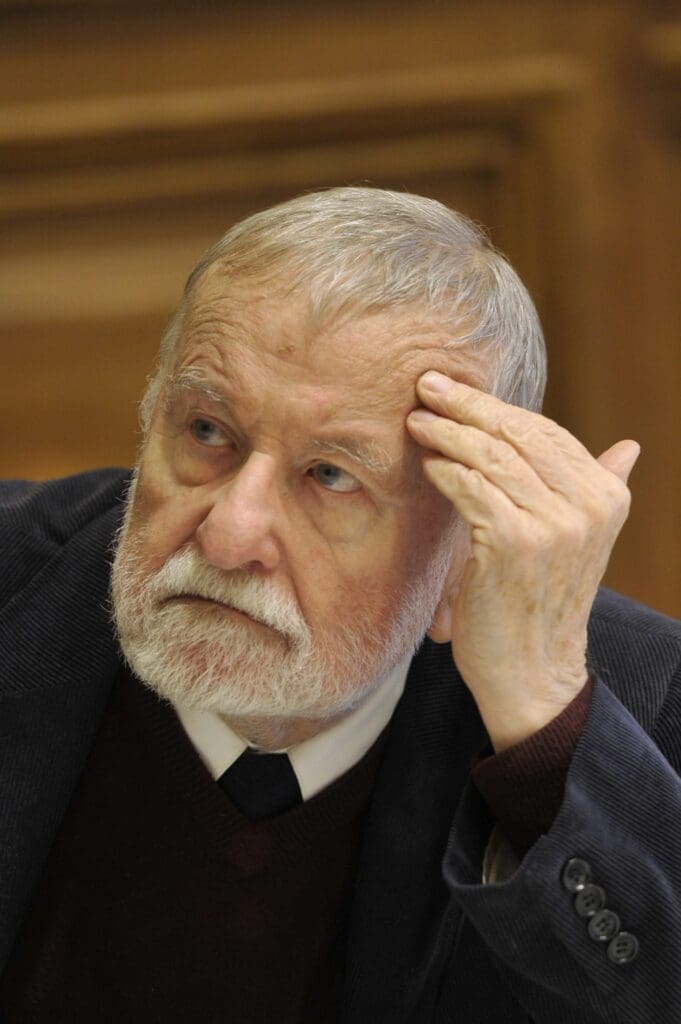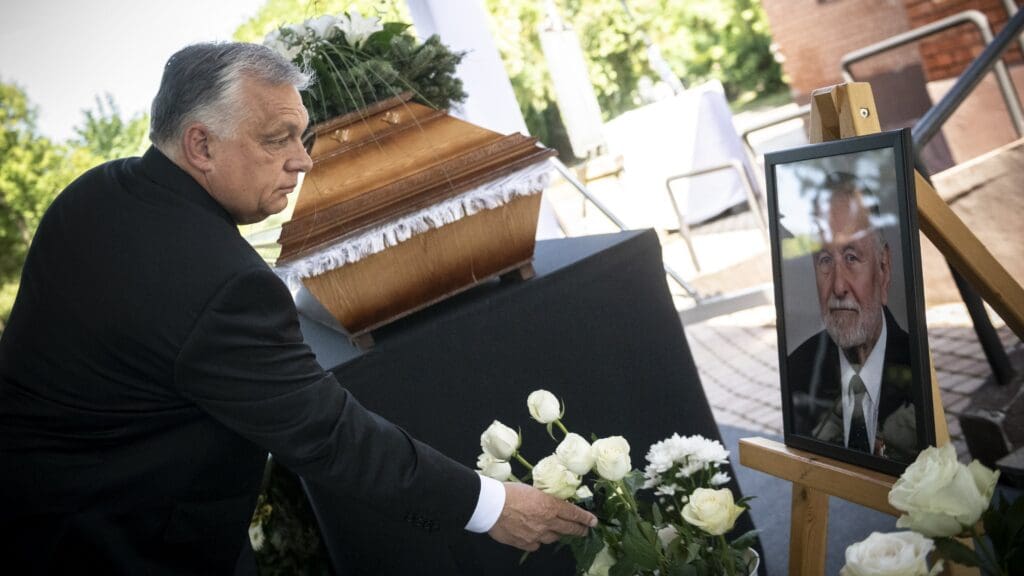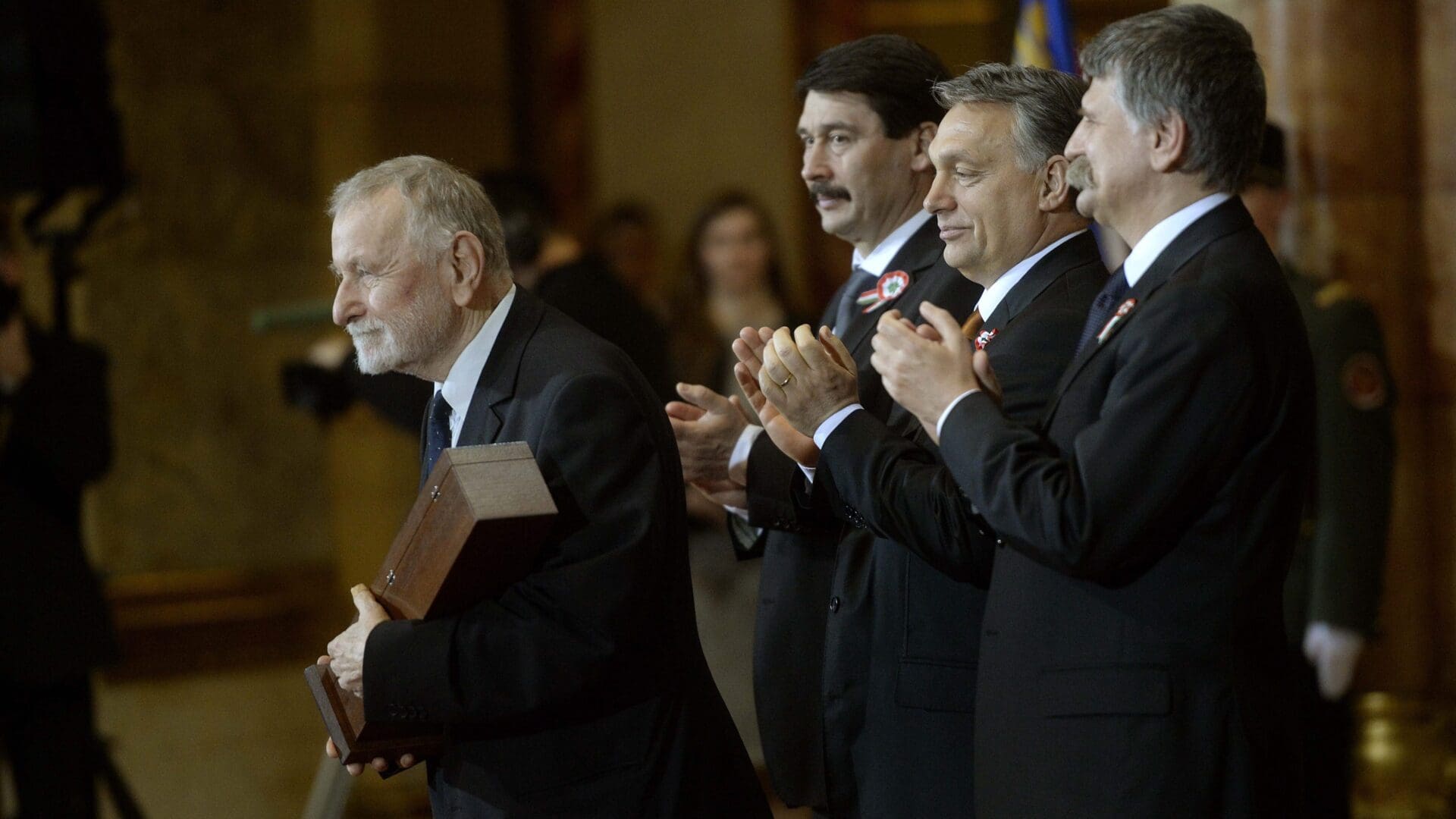Balázs Fekete is a jurist and law professor at ELTE University, who also works as a researcher in the University of Groningen’s CITIZEN LAW project. As a long-time friend and protégé of acclaimed sociologist, literary translator, member of parliament and thinker Gyula Tellér, who passed away earlier this year, he authored Tellér’s obituary in Kommentár, the conservative journal of which he is a regular contributor. Gyula Tellér (1934–2023) was also well-known as one of the main advisors of Viktor Orbán. In all of his capacities,
Tellér played a significant role in shaping modern Hungarian conservatism.
In the obituary, Fekete notes that the death of Tellér was a ‘watershed’ moment in the history of Hungarian political thinking, since his career and life spanned from the interwar period to the present day. Fekete also gives a briefs account of the life of Tellér from his studies until the later years, when he was working on advancing the idea of a ‘civic Hungary’ in the political arena. The piece outlines some important aspects in this long life, for instance, that Tellér achieved his status as a renowned political thinker despite of not being admitted to university in the 1950s for political reasons. Fekete also mentions that Tellér, apart from his important political and academic activities, was a symbolic figure, inseparable from the tempestuous decades of Hungary, as it was the historical perspectives and experiences he acquired during his long life that made him into who he was.

Fekete also describes his personal relationship with Tellér, which was both a friendship and a teacher–student relationship. He recalls how he and Tellér had long philosophical discussions in their favourite pub. The author draws a parallel between the influence Tellér had on him and on Hungarian thinking in general, calling this phenomenon the ‘Tellér-impact’.
Fekere also notes that while Tellér is either demonized or idolized in Hungary, there are very few who had a glimpse of his human side. Fekete details how Tellér helped him during his midlife crisis, how he encouraged Fekete to write, and to contribute to the conservative intellectual scene Tellér had a major role in creating.
The obituary also summarizes the theoretical legacy of Tellér. According to Fekete, for Tellér, humanity, nation, education, and critical thinking were the core values. First and foremost, the article outlines, Tellér believed in humanity. He also believed in civilization, and its achievements, as well as in the human being, as an individual, who is able to contribute to society, and who takes responsibility for his own actions. The author argues that Tellér identified the commercialization of every aspect of life and totalitarian thinking as the main threats to human beings. He was, according to Fekete, also fast to recognize these threats at an era, the early 2000s, when digitalization and wokeism were only nascent. Tellér offered culture as a cure to these dangers. Culture, in Tellér’s view, was about much more than books. According to him,
it was rather the total sum of knowledge and values, which could be used to make our humanity more perfect.
According to Fekete, another core value of Tellér was the nation. In fact, the author argues, it was his main one, to which he subordinated the other principles. For Tellér, nation meant solidarity, or, more precisely, an active and lived experience of solidarity. He argued that this solidarity must be re-created by each generation in order to make life liveable for all. In Tellér’s view, the nation must be defended from deconstructionist forces that attack not only the nation itself, but other pillars of it, for example the family.
Tellér also considered education very important. For him, it was a tool of recreating the nation itself, as through education, a nation can actively build the unity and solidarity between various generations. Tellér, according to Fekete, was not parochial: he did have a horizon stretching beyond Hungary, even in his views on education. Tellér in fact wanted to education to make it possible to gain universal human knowledge in a Hungarian framework.

Last, but not least, critical thinking was also a core element of Tellér’s set of values. While he opposed deconstructionism, Tellér examined things from a critical point of view. According to Fekete, he always looked ‘behind’ phenomena, and was keen on drawing parallels and finding the connection between seemingly distant things, creating mental systems. Fekete cites Tellér’s creation of the ‘system of the regime-change’ as an example: he identified the underlying forces and ideas which brought about the regime change around 1989.
Fekete concludes that the void left by Tellér will be impossible to fill, and the feeling of grief will stay with those who knew him and his work. But Fekete does not end his article on such a pessimistic note. Instead, he encourages readers to get acquainted with Tellér’s legacy. According to Fekete, reading his books, poems, translations, or just his ideas may be a valuable resource in overcoming challenges. The essence of his legacy is something that all can continue to build: a civic Hungary.








